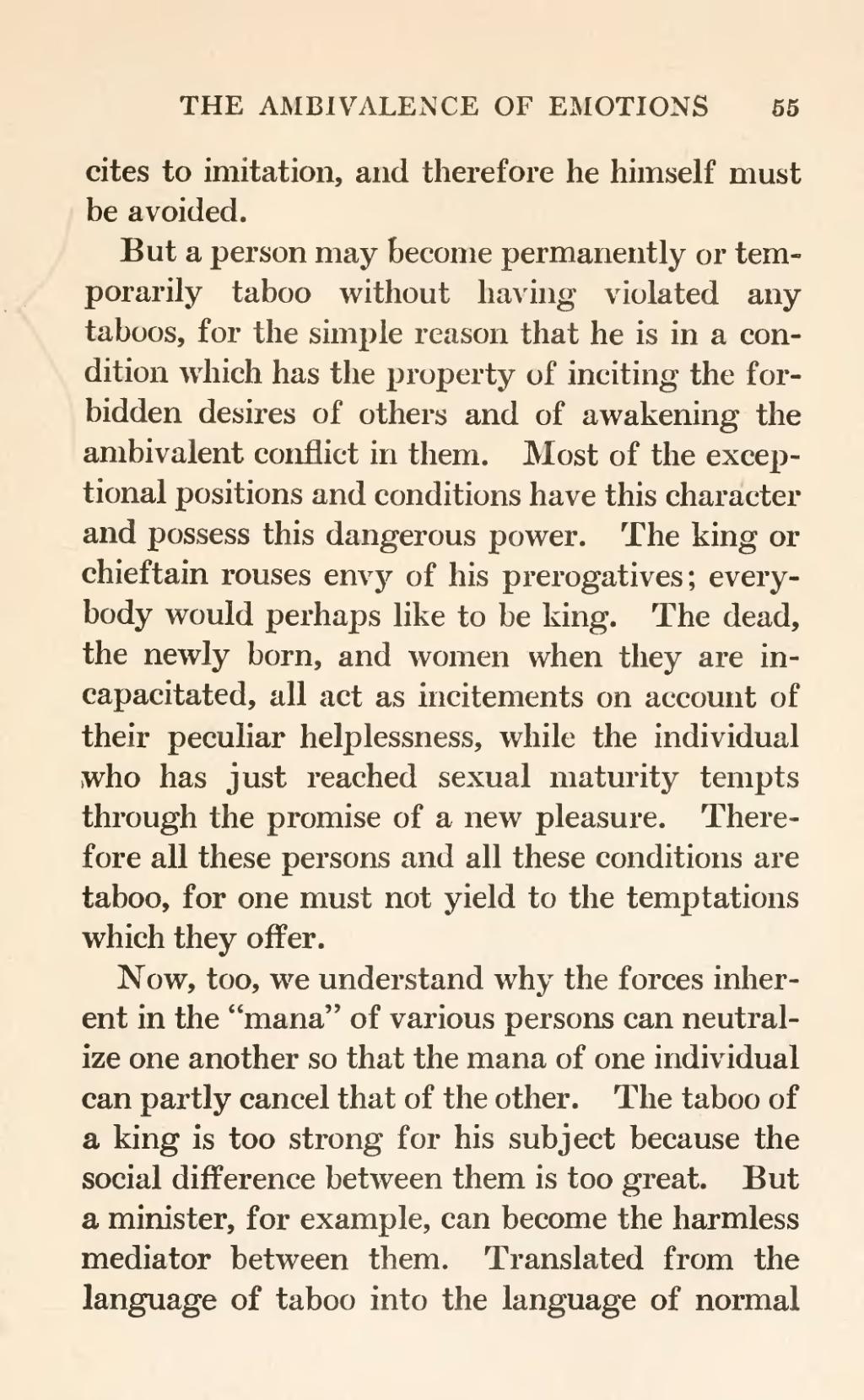cites to imitation, and therefore he himself must be avoided.
But a person may become permanently or temporarily taboo without having violated any taboos, for the simple reason that he is in a condition which has the property of inciting the forbidden desires of others and of awakening the ambivalent conflict in them. Most of the exceptional positions and conditions have this character and possess this dangerous power. The king or chieftain rouses envy of his prerogatives; everybody would perhaps like to be king. The dead, the newly born, and women when they are incapacitated, all act as incitements on account of their peculiar helplessness, while the individual who has just reached sexual maturity tempts through the promise of a new pleasure. Therefore all these persons and all these conditions are taboo, for one must not yield to the temptations which they offer.
Now, too, we understand why the forces inherent in the “mana” of various persons can neutralize one another so that the mana of one individual can partly cancel that of the other. The taboo of a king is too strong for his subject because the social difference between them is too great. But a minister, for example, can become the harmless mediator between them. Translated from the language of taboo into the language of normal
